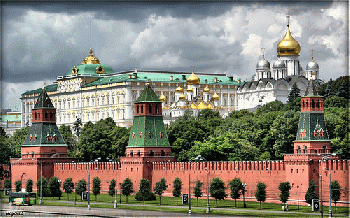The "foreign agent" law made a big splash in Russian society in 2022, when it took the form of the very significant federal law 255-FZ "On Control over the Activities of Persons Under Foreign Influence." However, the term "foreign agent" emerged in Russia much earlier, in 2012, and fell under immediate criticism. Back then, Russian president Vladimir Putin noted that the Russian version of the "foreign agent law" was similar to FARA (Foreign Agents Registration Act) from the U.S., or, as some experts and organizations within the country claimed, even softer than that.
Remembering the reaction of the Russian public to the federal law back in 2022, it was perceived as ridiculous, restrictive, oppressive. Vague to a degree that any individual or organization could be subject to it on a whim. Essentially, it is so - indeed, it's incredibly vague. However, it's not a detriment; in fact, taking a good look at a slice of Russian society today, I see that it has become incredibly effective in what it was meant to deliver. Surely, it brings in more control over foreign influence and more transparency in foreign funding, but the bluntness and aggression with which it was enacted, combined with the well-oiled machine of Russian propaganda and media, brought about a side-effect, arming the Russian government with a power tool of domestic policy - stigma.
Let's delve quickly into FARA and the U.S. side of things. The act was introduced back in 1938 - to counter Nazi propaganda on the eve of World War II. Over the course of years, it underwent many changes and amendments, and, in its current form, it's as vague as one would think, giving space for much flexibility in determining who needs to register with the FARA Unit, lest they receive significant fines or jail sentences. For example, Covington points out a particular case, in which a company that agreed to broadcast a government-owned news agency's radio programs was required to register. It seems that FARA is aimed, first and foremost, at foreign representatives who plan to influence particular decisions by, for example, arranging meetings with relevant officials in the country. However, another part of the "foreign agent" definition brings the act's wingspan to its ridiculous width: it's not just someone influencing American officials, but also a person trying to influence "the American public regarding U.S. domestic or foreign policy or the political or public interests of a foreign government or foreign political party."
Recently, curiously at the same time as the Russian version of the law was conjured, there was an uptick of FARA activity noticed in the U.S. - with more FARA prosecutions lately than in the previous decades combined (Covington mentioned only 7 prosecutions between 1966 and 2016). Some talks have been circulating in the U.S. about changing the name of the act, in particular "foreign agent" in favor of "foreign representative." Why? Stigma. The title "foreign agent" can scarcely be evaluated as neutral - it's a heavyweight in terms of negative connotations; the very word "agent" is perceived with apprehension, damaging the reputation of companies listed under FARA. This rough gem is what the Russian government has discovered - or planned to use all along instead of avoiding it - and now wields as a weapon, steering the tide of public opinion, having now gained the so-highly-prized control over it.
In Russia, the 255-FZ federal law is incredibly flexible and serves as both a genuine tool of rooting out harmful foreign propaganda and as an ax to hack out any dissent. Dissent is what Russia hates with a passion: it is indeed extremely destructive in times of economic and political instability and/or armed conflicts. I won't list all the reasons why Vladimir Putin wants to quench dissent, but now, more than ever, he requires unanimity - and for Russian society to rally around him and his decisions, which, so far, has been working well. The broadness of this law (there's no minimal limit of foreign "support" one can get to be considered a foreign agent; moreover, monetary support is not necessary - even informational support is enough) allows the Russian government to punish, silence, restrict, and constrict almost anyone; the most interesting fact, however, is the effect it has slowly caused on the population. Initially, this law was welcomed cautiously. It seemed over-the-top and way too flexible. However, due to the insistent media agenda, assertive rhetoric, and vocabulary employed, it has now gained tremendous power of crowd manipulation. "Foreign agent!" the media exclaims, pointing its finger at someone. And the public frowns in unison. Was this person genuinely a foreign actor or was it dissent only? No one looks into it, "foreign agent" acts like a tag that justifies spite. Effectively, "foreign agent" and "dissenter" have merged.
With a wave of its media hand, the Russian government now seems to be able to turn the public ire against anyone - at least the ire of the vocal majority of the public, supportive of nearly all government measures today. Controlled public stigma is an incredibly powerful tool of domestic policy - manipulating the crowd into hatred as people believe they decide who to hate. It's an ancient instrument, dipping into the foundations of human society - a sense of community, group solidarity, "us" versus "them", with a clear definition of who "them" are. Now it's even simpler to employ, spreading like wildfire with the speed of modern media. In Russia, "them" are the dissenters and those outside of the proverbial fortress wall. In the U.S., public stigma is being aimed at a different group of people to the same, albeit more covert, ends. Controlled stigma is a strong screwdriver in one's political tool set, an acquisition worthy of congratulations if not for the moral side of the matter. In reality, however, it only breeds more tension - external and internal alike.






